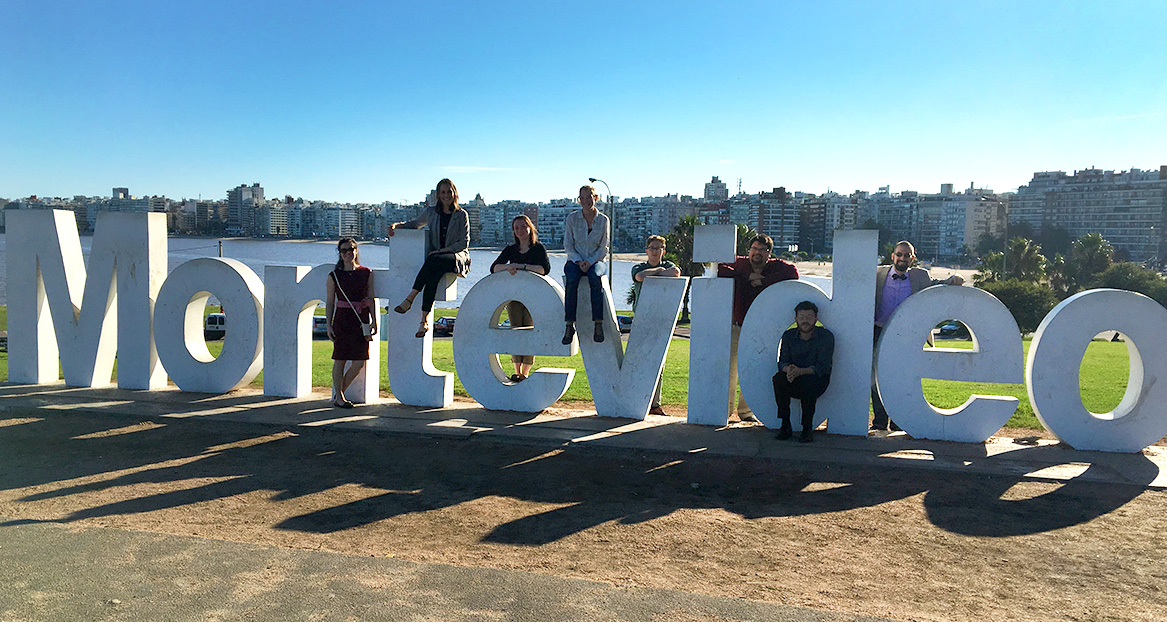
Fulbright Specialist Program
Grant activities
The Fulbright Specialist Program encourages host institutions to adapt projects to their needs. However, all projects must be focused on education or training. Given the brief nature of the exchanges, projects must have clear goals that can be reached during the specialist’s visit. So far, specialists have helped host institutions through activities like:
(*) Personal research projects, including clinical and medical research or projects that require contact with patients, are not eligible to receive funding in the context of the Fulbright Specialist Program.
Eligibility requirements for host institutions:
Institutions that may be eligible to request a Fulbright Specialist:
- Higher education institutions.
- Government institutions (ministries or bodies, courts, parliamentary or congress bodies).
- Cultural institutions (conservatories, museums, etc.).
- Non-governmental organizations, including institutions working on a specific issue and idea catalysts.
- Medical institutions (public health organizations, clinics, etc.).
Eligible disciplines:
Projects designed by potential host institutions should focus on one of the following eligible disciplines:
- Business management.
- Public administration.
- Anthropology.
- Archeology.
- Environmental sciences.
- Political science.
- Economics.
- Education.
- Biology teaching.
- Engineering teaching.
- Chemistry teaching.
- American studies.
- Computer science and information technology.
- Journalism and communication sciences.
- Public/global health.
- Sociology.
Program parameters:
- All exchanges should last between 14 and 42 days, including weekends, holidays, and trips.
- Projects take place in a single country, and all the activities should be developed in the country requesting the project.
- Each project is exclusive for a single Fulbright Specialist.
Benefits for foreign host institutions:
- Gain new global perspectives from experienced U.S. scholars and professionals.
- Carry out projects that require a quick response or a flexible schedule through brief exchanges over the year.
- Forge long-standing relationships with people and institutions from the U.S.
Identification of Fulbright Specialists:
Host institutions will not have to select the American scholars or professionals who will work as Fulbright Specialists for their projects before submitting their project proposals. On the contrary, if a project by a host institution is approved, World Learning, a partner of the program who is in charge of its implementation, will identify the candidates in the Fulbright Specialist Directory whose professional experience, academic credentials, and foreign language skills match the knowledge and skills described as key requirements by the host institution in its project proposal
If a host institution has identified a candidate they would like to bring as Fulbright Specialist, it must take into account that the following requirements have to be met:
- The person should be approved by the Fulbright Commission.
- The person should be approved to be part of the Fulbright Specialist Directory.
- The J. William Fulbright Foreign Scholarship Board has to approve the match between the person and the host institution’s specific project.
More information about the selection of specialists and the Fulbright Specialist Directory can be found in fulbrightspecialist.worldlearning.org.
Funding of the program and cost-share:
The U.S. State Department usually covers the round-trip airplane ticket in coach class, the enrollment in a limited health insurance plan, and a daily stipend for the Fulbright Specialist. In most cases, host institutions should provide the specialist with housing, meals, and in-country transportation, either through a stipend or in kind, during their whole stay in the country. The in-country transportation stipend should allow the specialist to travel from their place to the project location and back. Also, the stipend should cover local activities like grocery shopping or going to a market, pharmacy, etc.
Application process by host institutions:
Potential host institutions should submit a project proposal through the World Learning’s website.
The website accepts submissions all year round.
After receiving a project proposal, it will be reviewed by the Fulbright Commission. Only complete proposals will be reviewed. Please, bear in mind that the Fulbright Commission usually receives more project proposals than they can support, as funds are limited. Therefore, not all proposals will be accepted.
If your project proposal is approved by the Fulbright Commission, then it should be approved by several departments in the Bureau of Educational and Cultural Affairs (ECA) of the U.S. Department of State.
Contact details:
Potential host institutions should submit their queries to the Fulbright Commission, [email protected].
The Fulbright Commission will provide the host institutions with instructions to fill in the application.
Persons interested in becoming Fulbright Specialists:
Persons who are interested in becoming Fulbright Specialists must meet the following requirements:
- Be a U.S. citizen.
- Have significant experience in one of the eligible fields, with evidence of professional, academic, or artistic achievements.
A detailed list of the eligibility requirements and information about how to apply to be part of the Fulbright Specialist Directory can be found at fulbrightspecialist.worldlearning.org.
American scholars and professionals who are interested in applying to be part of the List of Fulbright Specialists should send their queries to World Learning at [email protected].
Cátedras Fulbright
Through Cátedras Fulbright, Fulbright Specialists will get the opportunity to share their research and work results with general audiences
Cátedras Fulbright is an initiative by the Fulbright Commission in Uruguay that aims at promoting the analysis of issues related to both Uruguay and the U.S. through bilateral dialogue among scholars and experts in different disciplines and fields from both countries.
- Promote academic relationships in Uruguay with universities from the U.S. to promote research development in the country.
- Increase Fulbright’s presence in the interior of the country.
- Strengthen the cooperation links between universities and research centers.
- Strengthen academic and institutional relationships with U.S. universities.
- Foster the connection with Fulbright alumni.
- Support from Fulbright Commission for the organization of the event.
- Visibility on the media, networks, and press.
If you want to request more information, please contact Analía Martínez, [email protected] / [email protected].